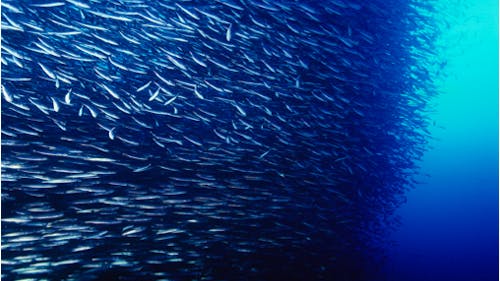Rising ocean temperatures decrease sustainable fishing, Rutgers study finds

Recently, there was a study conducted at Rutgers about the impact of climate change on fisheries, which are places where fish are grown for commercial purposes.
“We studied the impact of ocean warming on 235 populations of 124 marine fish and invertebrate species around the world,” said Chris Free, who led the research while earning his Ph.D. at Rutgers and is currently a postdoctoral scientist at the University of California, Santa Barbara. “We evaluated the factors that make fisheries either positively or negatively impacted by warming and what these impacts mean for the ability of the ocean to provide food and support livelihoods.”
The study also estimated how rising temperatures from 1930 to 2010 changed sustainable catch, which is the number of fish that can be caught without damaging the environment and food chain, said Malin Pinsky, an associate professor in the Department of Ecology, Evolution and Natural Resources.
Both researchers said that the results showed that the overall effect of ocean warming has resulted in a 4-percent loss of sustainable catch potential.
Factors such as metabolism, fertility, growth rate and the overall survival of fish and shellfish are also changed by climate change, Pinsky said. Specifically with fisheries, global warming has shifted where they are found in the state.
“Black sea bass, for example, used to be centered off Virginia in the late 1960s,” Pinsky said. “But are now centered off New Jersey.”
Free added that while some shellfish populations may benefit from ocean warming — according to Public Radio International, warmer oceans can lead to increased habitat availability because some species thrive in higher temperatures — others were negatively impacted.
“We found that species experiencing heavy overfishing and rapid warming and living in waters close to or warmer than their preferred temperatures were the most vulnerable to ocean warming,” Free said.
Pinsky said that there is still a lot that can be done to avoid further impacts.
“The best way to avoid negative impacts on fisheries would be to reduce greenhouse gas emissions,” Pinsky said. “Beyond that, we can also manage overfished fisheries more sustainably to help them withstand continued warming.”
When assessing fish population sizes and setting fish limits, it also helps to take changes in climate into account, Pinsky said.
This would affect food supply because more than 1 in every 2 people rely on fish as an important source of nutrients, Free said. It would also have an effect on those employed by fisheries.
“Over 56 million people are employed by or subsist on fisheries,” Free said. “Thus, a 4-percent decline in fisheries productivity means a 4-percent decline in fish available for people to eat and available for fishermen to catch.”
The study conducted was unique because such widespread impacts of ocean warming were already detected, but the Rutgers study focused on factors that were already impacting people, not future impacts, Pinsky said.
“While many researchers have attempted to forecast the effects of climate change in the future, we are the first to look at what the impact of climate change has already been,” Free said. “Climate change is not just something that’s happening in the future. It’s something that’s already happened.”



